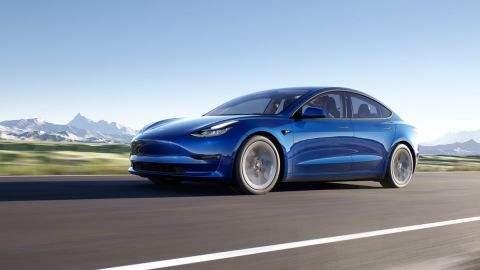Tesla’s EV retail sales surge in November 2023 but exports plunge by 55% in China
American electric car giant Tesla Motors experienced a notable surge in EV retail sales in China in the month of November this year, but exports from the Asian country saw a steep decline during the same period. As per stats released by the China Passenger Car Association (CPCA), Tesla recorded sales of 65,504 EVs in November 2023, marking a 5 per cent increase year-over-year. However, the company could export only 16,928 units from China, marking a substantial decline of 55 per cent year-over-year. The CPCA data also highlighted disparities, indicating an 18 per cent overall decrease in wholesale shipments of the Tesla Model 3 and Model Y, reaching 82,432 units in total.
The notable decline in exports for the second month in a row, following a 20 per cent decline in October, is undoubtedly a matter of concern as it is also perplexing analysts about the underlying reasons behind this decline. In spite of the falling export figures, year-to-date (YTD) data until last month still reflects positive growth for retail sales as well as exports. Retail sales showed a robust 33 per cent year-over-year growth, totaling 527,859 units; while exports exhibited a 27 per cent increase, reaching 325,744 units.
Notably, the American EV giant’s year-over-year growth rate decelerated, despite the manufacturer’s strategic price reductions. It is a matter of concern for the company also as it failed to increase exports despite having an impact on its profit margins due to price reductions. The company’s YTD wholesale shipments totaled at 853,603 units, marking a 30 per cent increase, but the diminished growth rate poses a weighty challenge.
When we analyze sales according to specific models, November's wholesale shipment figures showcase a substantial decline from the corresponding period of 2022. The Tesla MIC Model 3 electric sedan recorded shipments of 23,999 units, reflecting a 23 per cent decline. The Made-in-China (MIC) Model Y experienced a decline of 15 per cent, with only 58,433 units shipped. These outcomes are quite intriguing as both of these electric models underwent updates. The Model 3, which is also known as Highland, underwent major upgrades, while the Model Y received minor enhancements.
Moreover, the Model 3's November shipments were marginally higher than the July-September period but lower than October's figures, suggesting potential production constraints at Tesla's Giga Shanghai factory for the new Model 3 iteration.
Industry experts are of the view that Tesla’s EV sales and export patterns in China depict a multifaceted interaction among market variables, various manufacturing-related challenges, and consumer inclinations.
